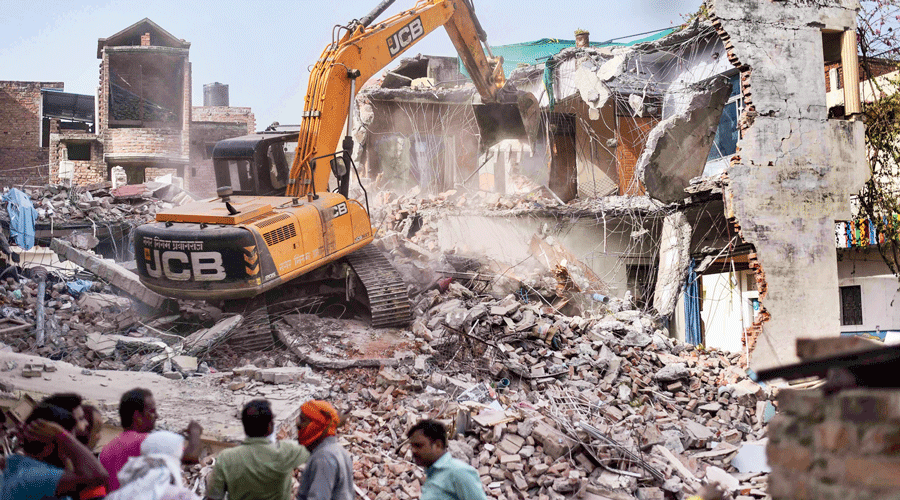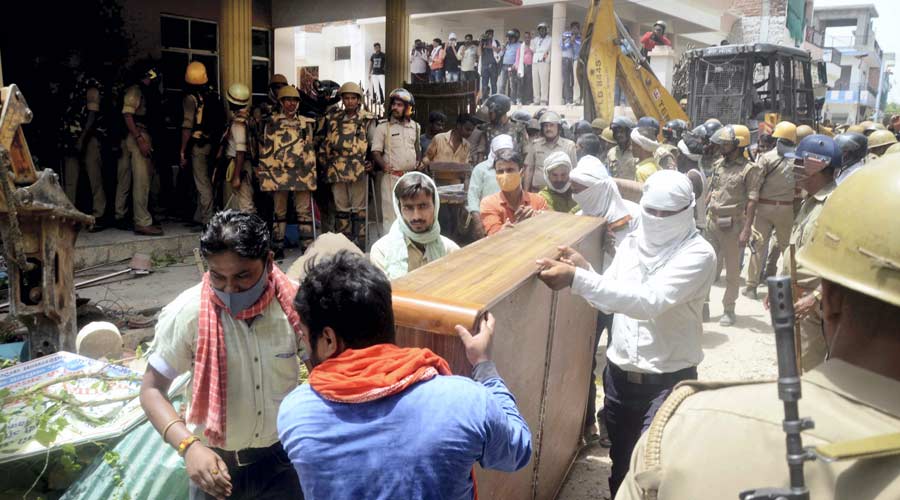Before the latest punitive demolition by the Uttar Pradesh government in Allahabad this month, three United Nations special rapporteurs had written to the Centre criticising similar actions targeting Muslims after communal clashes in Madhya Pradesh, Gujarat and Delhi.
This was confirmed by one of the special rapporteurs, Balakrishnan Rajagopal — associate professor of law and development at the department of urban studies and planning at the Massachusetts Institute of Technology — in an interview to journalist Karan Thapar for the news portal, The Wire, last weekend.
“We have raised many concerns and we have made our concerns very clear to the Government of India that this seems to really go beyond simply random acts of violence — that there is a pattern (to) it and, yes, there might be a concern on our part that they can amount to collective punishment,” Rajagopal said.
The letter was sent on June 9, three days before Allahabad authorities bulldozed parts of the house of Javed Mohammad, alleged “mastermind” of a violent June 10 protest against now-suspended BJP spokesperson Nupur Sharma’s comments on Prophet Mohammed.
In mid-April, houses and shops belonging mostly to Muslims were demolished in Khargone (Madhya Pradesh), Anand (Gujarat) and Jahangirpuri (Delhi) after communal clashes broke out during Ram Navami and Hanuman Jayanti processions.
According to the office of the special rapporteur, India has 60 days to respond to the June 9 letter. If India responds, both the response and the special rapporteurs’ letter will be published together.
“Special rapporteurs may in appropriate situations, including those of grave concern, issue a press statement, other public statement or hold a press conference,” Rajagopal’s office told this newspaper.
“This is, for example, the case if despite raising a matter with the concerned State, additional similar human rights violations are reported to them and it appears that their request to immediate(ly) halt the reoccurrence of the alleged human rights violation has not yet resulted in a situation in which the violation or violations have ceased.”
If there’s no let-up in punitive demolitions — the Allahabad action occurred after the letter was sent — the human rights concerns raised in the letter can be taken up also by other UN human rights mechanisms, such as the UN treaty bodies or the Human Rights Council under its periodic review of all countries, the SR’s office said.
“Of course, the hope of the special rapporteurs is that it would not be necessary to undertake further action,” Rajagopal’s office said.
“It is their hope that the Government of India and its independent judiciary will clearly communicate through public statements or in their judicial decisions that any arbitrary housing demolitions must immediately be halted. Persons suspected (of) violence should be held to account under established procedures of criminal law, and if proven guilty they may be fined or sentenced.”
Arbitrary house demolitions as a punitive measure violate not only international human rights standards but, most likely, also India’s national law, the SR’s office noted.
“In addition, such punitive housing demolitions punish completely innocent persons for conduct that cannot be attributed to them,” it said.
“This is the reason why UN human rights experts and the international community have in the past strongly criticised any punitive housing demolitions, as they have regrettably also been witnessed in other countries, for example in Israel.”












